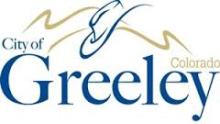
Fast, affordable Internet access for all.

The results of a broadband feasibility study are in for two northern Colorado towns weighing whether to establish municipally run high-speed Internet service. Though the overall recommendations are exploratory, they include hooking up the city’s main resources to fiber and adopting broadband friendly policies, with the possibility of expansion to Fiber-to-the-Premise (FTTP) services down the line.
Weighing the Options
Consultants offered a series of recommendations, all of which involve setting up legislation that incentivizes investment and reduces installation costs, such as a dig once policy, and connecting city infrastructure to fiber. The study suggested three types of actions with varying degrees of involvement from the local government:
1. The city could attempt to persuade incumbent providers to invest in faster, more reliable Internet services.
2. Enter into some sort of public-private partnership in which the cities and the private ISP partner/s co-invest in creating a fiber gig service.
3. Build a municipally run FTTP network.
With any of the options, NEO reps stressed the goal of getting everyone in the town to a gig, what NEO CEO Diane Kruse described as the “gold standard” of capacity.
The consultants affirmed that an FTTP setup would be financially feasible under the right circumstances (found on page 68 of the report) that include a threshold 30 percent take rate for Greeley and 35 percent for Windsor within three years, and at least $5 per customer utility fees. The utility fee model of funding deployment entails customers paying a monthly surcharge to go towards maintenance and construction of the network. With this model, when a higher number of subscribers connect, the fee usually decreases.
In Greeley, to get things like traffic lights, smart meters, and municipal buildings hooked in with fiber, the cost would top off at around $3.7 million, provided they utilize the nearly 18 miles of existing fiber. If the community chooses to deploy the entire network from scratch, NEO Connect estimates the project would run approximately $8 million. In Windsor, the costs would be approximately $260,000 and $1.7 million, respectively. With a 30 percent expected take rate, laying municipal fiber would cost an estimated $111 million for Greeley and $45 million for Windsor.
A Winding Road
The City of Greeley has been considering starting its own municipal broadband for a few years now. Along with the neighboring town of Windsor, Greeley commissioned this study from broadband strategy consultants NEO Connect back in 2016.
 Greeley is larger than Windsor, with populations of around 100,000 and around 30,000, respectively. The two Colorado towns are part of a smattering of municipalities looking to obtain local control of telecommunications. A constraining 2005 state law, SB 152, restricts localities from investing in Internet infrastructure unless they put it up to a vote for citizens to decide; so far, voters in more than 100 localities have said they would like that option, and opted out of the legislation.
Greeley is larger than Windsor, with populations of around 100,000 and around 30,000, respectively. The two Colorado towns are part of a smattering of municipalities looking to obtain local control of telecommunications. A constraining 2005 state law, SB 152, restricts localities from investing in Internet infrastructure unless they put it up to a vote for citizens to decide; so far, voters in more than 100 localities have said they would like that option, and opted out of the legislation.
Including Greeley. Last November, 61 percent of the city’s voters said “yes” to opt out, paving a road for a publicly owned network in the city, if the community decides it’s the best option. Though the same hasn’t happened in Windsor, the town listed municipal broadband as a possible initiative to improve infrastructure services in general as part of its 2016-18 Strategic Plan.
Despite putting the opt-out measure on last November’s ballot, city administrators in Greeley still seem in no hurry to make any formal decisions on the matter of municipal broadband. After the May feasibility study presentation to Greeley City Council, the Greeley Tribune talked with Mayor John Gates, who suggested more public outreach before the city makes any decisions about next steps: "We'd like to have our citizens weigh in because we have some options," he said. "But no matter which way we go, it's not going to be easy."
As part of the report, NEO published the results of a city-sponsored residents survey about the quality of current Internet access options. According to the study, nearly 80 percent of Windsor currently receives service from Comcast, and Greeley has a mix of providers from big ISPs, such as Comcast and CenturyLink to smaller ones, including Rise Broadband, which offers fixed wireless.
Most of those surveyed for the study responded having at least some disruption of their Internet service. From page 4 of the report:
[Eighty one to eighty two percent] of the respondents stated that the download and upload speeds are too slow either sometimes, most of the time or always. Speeds vary throughout the day as more users are on the Internet and there are times when respondents cannot get on the Internet.
 About a quarter of survey respondents said they would at least consider packing up and moving if Internet speed and reliability didn’t improve. The city of Longmont is just a little less than an hour southwest of the two towns, and has offered municipal broadband since 2014. The thought of a nearby move could entice Greeley and Windsor residents with slow and unreliable Internet access.
About a quarter of survey respondents said they would at least consider packing up and moving if Internet speed and reliability didn’t improve. The city of Longmont is just a little less than an hour southwest of the two towns, and has offered municipal broadband since 2014. The thought of a nearby move could entice Greeley and Windsor residents with slow and unreliable Internet access.
Another concern cited by Greeley residents is the recent Federal Communications Commission decision to repeal net neutrality rules late last year. In a letter in the Greeley Tribune, a resident described how big ISPs “throttle” specific websites, and how municipal broadband could counteract that practice. The report noted that cities like Longmont and Fort Collins, Colorado -- who decided recently to offer locally run Internet services -- have made pledges to keep open an equitable Internet access, which assures their role as providers that do not engage in paid prioritization.
NEO Connect also presented speed test findings by BroadbandNow from a sample of IP verified users in the area, and found Windsor to have average download speeds 25 percent slower than Colorado’s average. Greeley’s speed test results, on the other hand, showed average download speeds of 36 Mbps, 12 percent higher than average Colorado speeds. According to the study, Comcast claims it offers gigabit speeds in both Greeley and Windsor, but the reported speed tests never clocked them.
